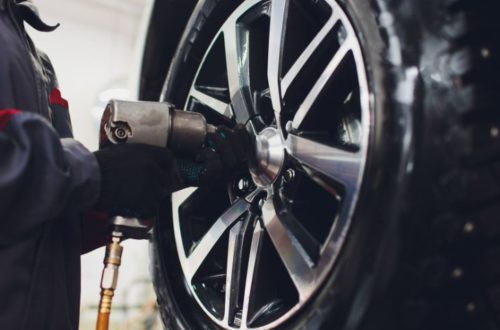4 Odors in Your Car That Could Indicate Problems

There are many ways that your car can tell you that something is wrong—including by its smell. If you notice these odors in your car, it likely indicates that there are deeper, more serious problems with the vehicle. Learn more about common car odors and what they mean below.
Gasoline
While it’s not uncommon to smell gasoline around a car, if you notice a lingering smell of gas fumes in your car long after you’ve left the gas pump, that’s not a good sign. Maybe you got some gasoline on your clothing or shoes while filling up at the pump, but if that’s not the case, this odor could be a symptom of a larger issue.
The problem could be a fuel tank, gas cap, or fuel injector leak. It’s unsafe to drive a car that’s leaking gasoline, and it’s not comfortable driving if you’re constantly inhaling fumes, so check this potential problem out immediately.
Burning Toast
A burning smell is one of the most common odors in your car that could indicate problems. A burning smell, generally, is not a good sign, but if you can distinguish what the burning odor smells like, it could narrow down the potential source of the issue.
For instance, if it smells like burnt toast, it could be a sign your performance flywheel needs to be replaced. If the clutch plate loses its protective friction coating, it can lead to excessive friction and heat between the plate and flywheel, causing a burning odor to emanate. Check your flywheel to see if it’s the source of the burning odor.
Rotten Eggs
We’re all familiar with the unpleasant smell of rotten eggs, and there are actually multiple potential reasons why your vehicle could be producing the odor. Often, it’s an issue with the car’s fuel system, like the catalytic converter, fuel filter, or fuel pressure sensor.
If these components are compromised in a certain way, they can leak sulfur gas, which is similar to the smell of rotten eggs. The smell could also be from a battery leaking sulfuric acid—check both to see if you can pinpoint the stinky smell in your car.
Burning Rubber
If you like to peel out with your car, you’re familiar with the smell of burnt rubber—but if you still smell it long after peeling out during your drive, this could point toward a bigger problem. If you smell burnt rubber while driving normally, the smell probably isn’t from your tires but under the hood.
The burnt rubber smell is likely from a rubber hose or belt in the engine compartment that’s come loose. When these rubber hoses or belts come loose, they can come into contact with hot engine components, causing the rubber to burn and create the odor you smell.
Would you like to receive similar articles by email?





